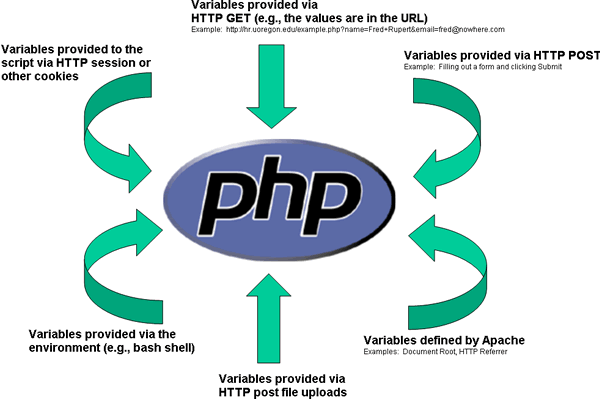Connect with us
Recent Posts
-
SEO Report: A Look at PHP
 “What about PHP?” ask many new webmasters. They’ve heard the acronym, but don’t really know what it all means. In the last post we saw how AJAX can impede our SEO results – well, PHP pages can hinder our SEO efforts as well, because when compared to HTML pages, PHP can be very challenging to SEO professionals. However, don’t give up or think that PHP pages cannot be optimized effectively. You can indeed optimize PHP pages and achieve good search engine rankings.
“What about PHP?” ask many new webmasters. They’ve heard the acronym, but don’t really know what it all means. In the last post we saw how AJAX can impede our SEO results – well, PHP pages can hinder our SEO efforts as well, because when compared to HTML pages, PHP can be very challenging to SEO professionals. However, don’t give up or think that PHP pages cannot be optimized effectively. You can indeed optimize PHP pages and achieve good search engine rankings.One of the major factors that search engines now look for is the page loading time. When the search engine spiders access your website andyour web pages take an excessive amount of time to load because of the server response time, then you will not be able to benefit as you should from indexing. Spiders will look at your website as unresponsive website. PHP pages take longer to respond because there has to be communication made to the database stored in the server. The database and the loop code affect the page’s response time tremendously.
Though AJAX pages circumvent server time delays using an intermediary engine, search bots cannot read Java Script.- meaning a different method is needed to reduce delays. One solution is to optimize your pages and reduce the response time by avoiding the SELECT calls. In place of SELECT calls, use the names of the columns that you would like to retrieve. You should also take advantage of duplicated codes instead of entering into loops that are of repetitive nature. Loops can make PHP coding easier and effective, but they are a death knell to proper SEO so avoid coding styles which will send the search engine bots into loops.
In addition, consider your URL; it should always be crawlable. You need to make your PHP pages behave like HTML pages, which is normally accomplished by using Apache server calls. This will work if you have a large site, and by reason of its size can create duplicate URLs that imitate static URLs. However, you may have to find an alternative strategy if your website is very small. A large number of SEO professionals try to minimize the usage of GET variables However,don’t use shortcuts and take chances here. Any faking of URLs should be carried out by experienced programmers to ensure that you serve unique pages when the URLs are unique.
Finally, remember that PHP pages add session id numbers to the links if your browser should reject cookies. You can disable the entire trans-id component if this is a problem. The above tips are only a few of the ways you can optimize your PHP pages. You should always try to hire experienced programmers who really know the principles of SEO, since optimizing PHP pages is not as simple as optimizing HTML pages. Going PHP can be wonderful, but only if it is done right!
Recent Posts
-
What are Top 2020 SEO Trends...
1.The ERA Of VOICE SEARCH Hello, 2020! Long gone are the days when we used to head over to the search engines on our desktops and
Read More -
Why Is SEO Super-Duper...
The year’s 2019! We have long laid our footsteps in this digital world. Did you know that more than 4 billion people al
Read More -
National SEO Services –...
Introduction about National SEO Services A National SEO service provider uses search engine optimization practice to enhance the
Read More






